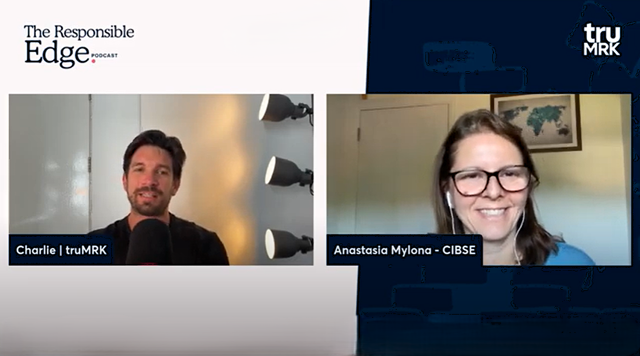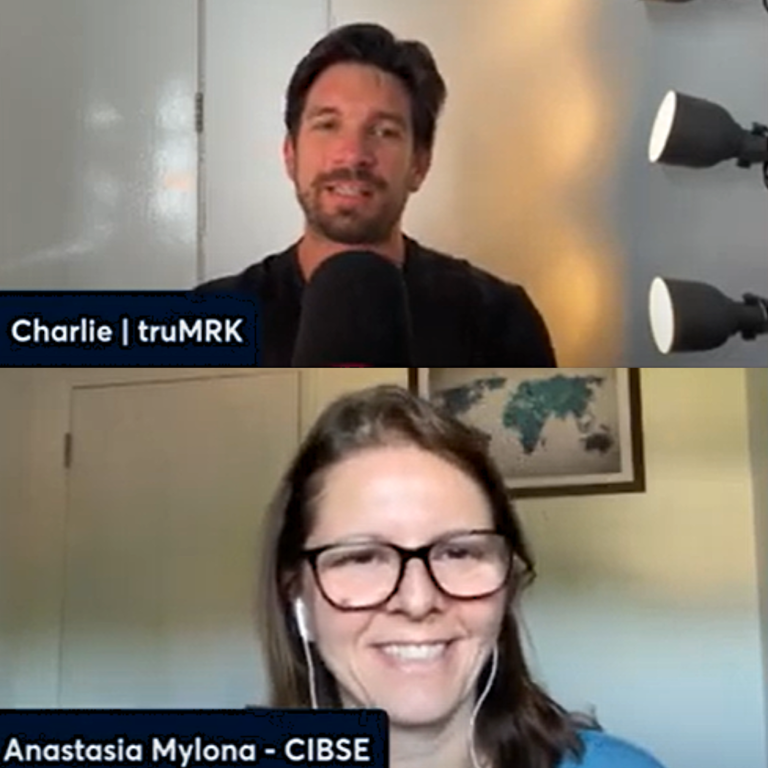In a compelling interview on The Responsible Edge podcast, Dr Anastasia Mylona, Technical Director at CIBSE, set out a powerful vision for how engineering is driving real-world climate action, where policy has fallen short.
Speaking with host Charlie Martin, Anastasia articulated the pivotal role of building services engineers in tackling the climate emergency. “We are the engineers that have the solutions to saving the world,” she said, not with marketing polish, but with the grounded confidence of someone who has spent decades translating climate science into practical engineering action.
Leading where policy lags
Anastasia outlined how, in the absence of a coherent government-led approach to net zero in the built environment, it was engineers—supported by key institutions including CIBSE, RIBA and RICS—who took the lead.
The result is the UK Net Zero Carbon Buildings Standard, a robust and voluntary industry benchmark that sets out clear, performance-based criteria for achieving net zero across both new buildings and retrofits. Stress-tested by over 200 organisations, it provides a common language and methodology for clients, designers and engineers to work together effectively.
“This isn’t a white paper or a wishlist” Anastasia explained. “It’s a practical tool—ambitious but realistic—that enables real accountability and real change.”

Futureproofing buildings, not just designing them
A core theme of the conversation was the need to design buildings that are resilient to a changing climate, not just in principle, but in operational reality. Drawing on her academic background in overheating risk and climate impacts on the built environment, Anastasia discussed how buildings must be viewed not as static objects, but as dynamic systems that interact with people, weather, and energy over their entire lifespan.
This ethos underpins CIBSE’s technical guidance and the new standard: providing clarity on everything from embodied carbon to passive cooling, weather files to thermal comfort. “Net zero isn’t a five-year goal, it’s the whole life of a building” she said.
Why a voluntary standard matters
Despite the success of the standard, it remains voluntary, something Anastasia addressed directly. “We created it because there was no alternative. Definitions of net zero varied so much, it made cross-sector collaboration almost impossible.”
The standard fills that gap, giving the industry a credible, consistent reference point. And it’s gaining international attention, with organisations from the UAE to the US now exploring how to adopt or adapt it. “Nowhere else in the world has developed something like this” she noted.
Rethinking what really matters
In a lighter moment of the interview, Anastasia was asked what she would change with a wave of a magic wand. Her answer? “I’d like the world to be less commercial.” Behind the gentle tone was a serious point about values—about moving beyond cost-driven decisions to focus on people, nature, and places that enhance quality of life.
The full podcast episode is available now, please watch it below.
